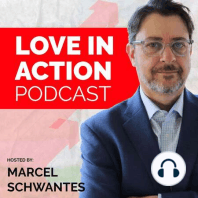40 min listen
Employee Engagement Starts in the Brain with Dr. Melissa Hughes
FromLove in Action
ratings:
Length:
46 minutes
Released:
Aug 29, 2019
Format:
Podcast episode
Description
Marcel Schwantes chats with Dr. Melissa Hughes about how the brain works and how to make it work better. Dr. Hughes, a neuroscience expert, is the author of Happy Hour With Einstein, as well as a keynote speaker and thought leader. She shares practical applications of neuroscience to help leaders learn habits that lead to positive work cultures of belonging, psychological safety and gratitude.Learning is not confined to the classroom. Everyone wants to know how to make their brain work better. What differentiates one company from the other is the ability to learn together. [4:00]Companies implement many initiatives to increase employee engagement. However, research shows that the biggest reward comes when people feel valued and respected. We all want to know that what we do matters. [5:40]Psychological safety is very important: employees need to feel safe enough to take risks, and be authentic and vulnerable without fear of negative consequences. In psychologically safe teams, members feel respected and accepted. These teams perform better. [6:26]We all need to feel a sense of belonging at work. When we do, our brain generates neurotransmitters to facilitate activity in the prefrontal cortex. When we feel that we don't fit in, our brain releases stress chemicals to activate the fear-threat center. Belonging is the foundation for culture and culture is the foundation for engagement. The leader’s job, therefore, is to make people feel connected, happy and satisfied. [11:00]Instead of asking how to increase engagement, leaders should ask how to decrease cortisol and increase dopamine, oxytocin and serotonin, the good neurotransmitters that make people feel connected and creative. [14:00]Melissa explains how oxytocin, serotonin and dopamine affects our emotions. She shares simple ways how leaders can create experiences for their employees that generate these feel-good brain chemicals. [16:06]Gratitude is a natural antidepressant. It elevates our mood, lowers blood pressure and heart rate, and gives us a greater sense of belonging. When we practice gratitude we release dopamine and serotonin which travels to the bliss center of our brain. The more these neural pathways are stimulated, the stronger and more automatic they become. [28:49]Increasing productivity does not start with how to do the work. It starts by treating people with the same care and compassion as those we love. When we do this, we create a better work environment with higher productivity because everyone is invested emotionally in what they are doing. [40:20]When we learn how to trigger positive emotions we can reach our highest potential and find purpose, success and satisfaction. [42:35]ResourcesMelissaHughes.rocks
Released:
Aug 29, 2019
Format:
Podcast episode
Titles in the series (100)
Being a Chief Heart Officer with Claude Silver by Love in Action
